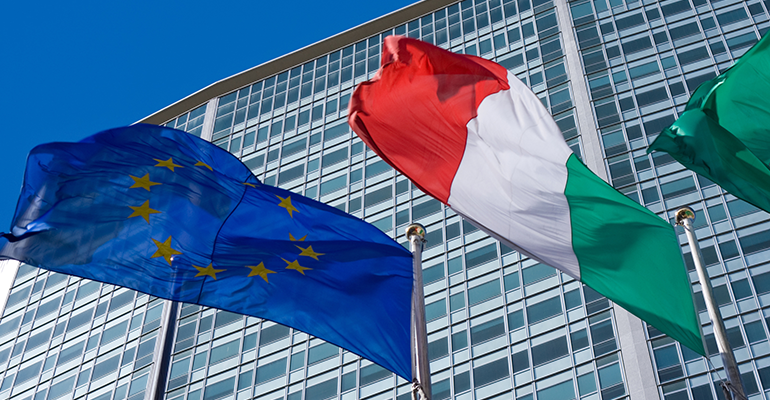News
Italy moves to ‘protect farmers’ and ‘culinary tradition’ with lab-grown meat ban
8 Dec 2023The Italian Government has confirmed plans to ban the production, sale or import of cultivated meat, citing a need to protect the country’s culinary culture and agricultural industry.
In a bill passed by Italy’s Chamber of Deputies last month, manufacturers are subject to restrictions on what they can label plant-based meat alternatives, with meat-based terms such as ‘salami’ or ‘steak,’ prohibited.

Under further terms of the bill put forward by Prime Minister Giorgia Meloni’s right-wing government, anyone found guilty of breaching the cultivated meat prohibition could face fines of up to €60,000.
During the recent COP28 summit in Dubai, Prime Minister Meloni said: “The promulgation of the law on synthetic food is an achievement that shows how Italy has become a vector, model and political avant-garde.
Italy’s Minister for Agriculture, Francesco Lollobrigada added: “With the decree of the law strongly demanded by the Meloni Government, Italy confirms itself as the first Nation in the world to defend its own agri-food production heritage and the health of its citizens from the risks of synthetic food.”
The EU continues to resist calls to approve cultivated meat
Essentially, the ban looks to safeguard the livelihoods of farmers and the country’s culinary traditions with Italian MPs citing cultivated meat as contributing to “erasing our traditional food system.”
At the time of writing, the EU has not given the novel food regulatory approval, with signs pointing towards the region’s government agencies rejecting the proposal.
News of the ban was also rejected by the Good Food Institute (GFI) Europe, a nonprofit think tank with interests in building a more sustainable food system by encouraging alternative meat production.
“This bill not only deprives consumers of choice but also isolates Italy from the investment and job creation offered by this burgeoning industry,” said Francesca Gallelli, public affairs consultant at GFI Europe.
“The debate surrounding cultivated meat in Italy has been fuelled by misinformation, as hearings in the Senate intentionally excluded cultivated meat companies and supporters while allowing false claims from opponents of this sustainable food.”
Italy’s ban could be in violation of EU law and principles of the single market
Gallelli added that the organisation welcomed the intention of the government to submit the law to EU scrutiny, where member states could voice their concerns about the ban’s potential violation of the single market.
 © iStock/photovideostock
© iStock/photovideostock
European policy experts have stated that Italy may not be able to enforce a ban on the sale of cultivated meat within the EU region, owing to the common single market that permits the free movement of goods and services.
However, Lollobrigida said he did not expect problems from the EU, which “holds the principle that the identity of peoples must be preserved”.
One prominent supporter of the government’s plans is farmers' association Coldiretti. Its president Ettore Prandini said of the Bill’s passing: “Italy is a world leader in food quality and safety. The country has a duty to lead the way in policies that protect citizens' health.”
Referencing the recent mad cow disease scandal, Prandini pointed out that Italy was the first country to adopt national rules for the obligation to label the origin of food.
“As a result the European Union is progressively aligning itself with the overcoming of doubts and disputes that they are now part of the past," he added.
Is Italy’s cultivated meat ban a step back compared to the rest of Europe?
Italy’s ban on cultivated meat is at odds with other European governments that are eager to promote the benefits of cultivated meat.
In 2022, the Netherlands approved €60m of public funding for research and development of cultivated meat and precision fermentation.
Meanwhile, the UK government has set aside €14m (£12m) for research into alternative proteins that includes cultivated meat, while Denmark recently revealed details of a national plan to support the development and uptake of plant-based meat.
Other countries looking into the benefits of cultivated meat include Spain, which recently invested €5.2m into research looking at the possibilities of cultivated meat in warding off food-related diseases.
In Catalonia, the federal government recently invested €7m in research facilities designed to aid firms scale up the production of plant-based meat and fermentation.